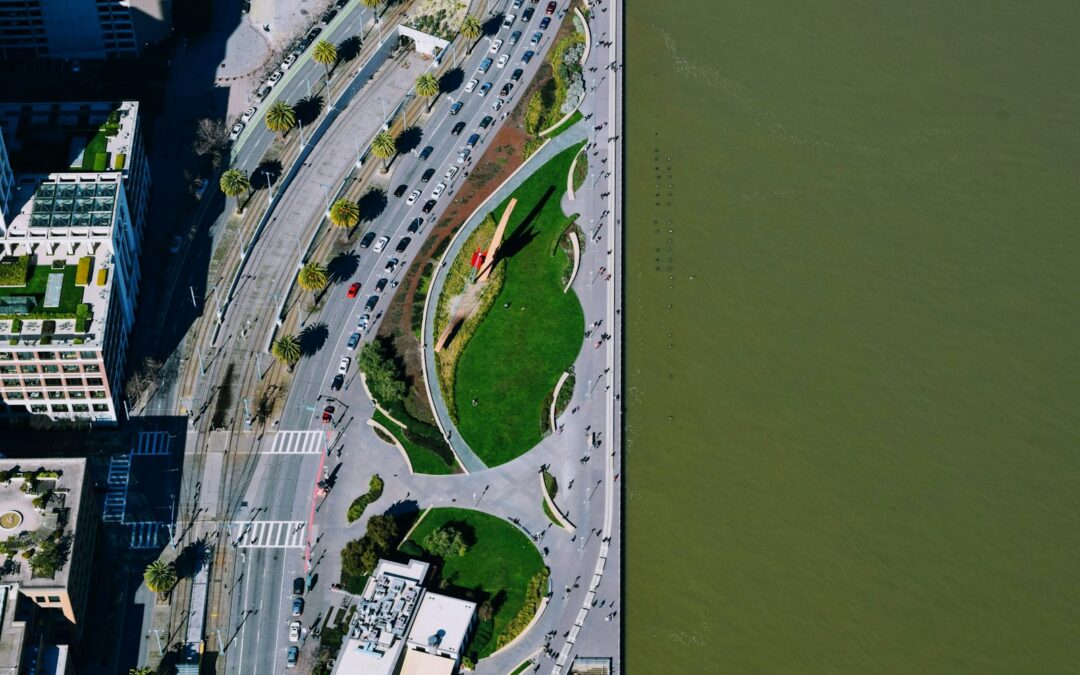Revolutionizing Urban Environments with Autonomous Technology in Riyadh and Dubai
The integration of autonomous mobility into urban planning and infrastructure development is set to revolutionize cities like Riyadh and Dubai. As these cities continue to expand, the adoption of autonomous vehicles (AVs) offers a unique opportunity to create more efficient, sustainable, and interconnected urban environments. By leveraging cutting-edge technologies such as Artificial Intelligence (AI) and the Internet of Things (IoT), autonomous mobility can significantly enhance the planning and development of urban infrastructure.
Autonomous vehicles can alleviate traffic congestion and improve overall transportation efficiency. In fast-growing cities like Riyadh and Dubai, where traffic congestion is a persistent challenge, AVs can optimize traffic flow and reduce delays. These vehicles can communicate with traffic management systems to adjust traffic signals in real-time, ensuring smoother movement of vehicles. This not only enhances the efficiency of the transportation network but also contributes to reducing carbon emissions and improving air quality.
Moreover, autonomous mobility can transform the design and utilization of urban spaces. With AVs requiring less parking space and being able to operate continuously, cities can repurpose existing parking areas into green spaces, commercial zones, or residential developments. This reimagining of urban spaces can lead to more livable and attractive cities. In regions like Saudi Arabia and the UAE, where urban development is a key focus, the integration of autonomous mobility can support the creation of modern, sustainable urban environments that cater to the needs of their growing populations.
Leveraging AI and Blockchain for Advanced Infrastructure Development
The integration of AI and Blockchain technologies with autonomous mobility is essential for the successful transformation of urban planning and infrastructure development. AI enables autonomous vehicles to navigate complex urban environments, make real-time decisions, and interact with other smart systems. In the context of infrastructure development, AI can optimize the planning and construction of transportation networks, ensuring they are efficient, sustainable, and resilient.
Blockchain technology provides a secure and transparent framework for managing data and transactions in urban planning and development. By creating an immutable record of all interactions, Blockchain ensures the integrity and accountability of data, which is critical in large-scale infrastructure projects. In Riyadh and Dubai, Blockchain can facilitate the secure tracking and management of construction projects, ensuring that they are completed on time and within budget. This transparency builds trust among stakeholders and enhances the overall efficiency of infrastructure development.
Furthermore, the combination of AI and Blockchain supports the development of innovative solutions that enhance the sustainability and efficiency of urban infrastructure. AI can analyze data to predict and address potential issues in infrastructure projects, while Blockchain can verify and share critical information among project stakeholders. This integrated approach not only improves operational efficiency but also ensures that urban infrastructure is built to the highest standards of sustainability and resilience. In the rapidly evolving environments of Saudi Arabia and the UAE, leveraging these technologies can significantly enhance the capability of urban planning and development initiatives.
Leadership and Change Management in Urban Transformation
Effective leadership and change management are crucial for the successful implementation of autonomous mobility in urban planning and infrastructure development. Business executives, mid-level managers, and entrepreneurs must navigate the complexities of these innovations and guide their organizations through the transition. This involves developing a strategic vision, fostering a culture of innovation, and ensuring that teams are equipped with the necessary skills and resources.
Executive coaching services can provide valuable support to leaders as they navigate the challenges associated with integrating autonomous technology into urban planning and development. Coaches can help executives refine their strategies, overcome obstacles, and drive successful outcomes. In regions like Saudi Arabia and the UAE, where technological advancements are rapidly transforming the business landscape, investing in executive coaching can enhance leadership capabilities and ensure the successful implementation of new urban development models.
Change management is also critical for ensuring that organizations can adapt to new technologies effectively. Managers must communicate the benefits of autonomous mobility to their teams, address any concerns, and foster buy-in. This involves providing training and resources to help employees adapt to new systems and processes. In the dynamic environments of Riyadh and Dubai, effective change management can significantly enhance the adoption and success of autonomous mobility solutions, creating a more innovative and resilient urban infrastructure framework.
#AutonomousMobility #UrbanPlanning #InfrastructureDevelopment #AI #Blockchain #Riyadh #Dubai #SaudiArabia #UAE

